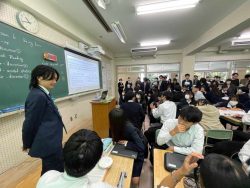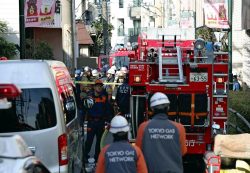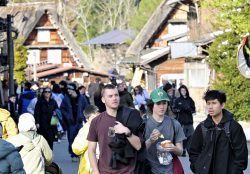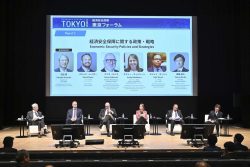16:17 JST, December 13, 2024
The decline of local communities is casting a shadow over elections, the foundation of democracy.
Many municipalities are shortening voting hours in areas with few residents, but it is hoped that sufficient attention will be paid to ensure that voters do not face a disadvantage.
An increasing number of municipalities are moving up the time at which voting ends from 8 p.m. in national and local elections and closing polling stations earlier. This is because, mainly due to the aging population, fewer people go to the polls in the later hours, and it is becoming difficult to keep observers for a long time.
The Public Offices Election Law allows for polling stations to move up the closing time if certain conditions are met. This was initially an exceptional measure, but it has become the norm, especially in areas with a declining population.
In the House of Representatives election, in which voting and ballot counting took place on Oct. 27, about 40% of polling stations nationwide moved up the closing time. Tochigi Prefecture was the only prefecture in the nation where all municipalities shortened the voting hours, and the same action was taken in the prefecture’s gubernatorial election on Nov. 17.
The closing time of polling stations was extended by two hours from 6 p.m. in 1998 as a measure to increase voter turnout in consideration of people with jobs, among other reasons. However, the fact is, partly due to subsequent population decline, municipalities are no longer able to keep polling stations open until a later time.
Shorter voting hours will help reduce the workload of municipal employees involved in election administrative work and reduce their overtime pay. Polling stations also are being consolidated or closed.
Flexible management of polling stations according to local circumstances may be a realistic response. However, a situation must be avoided in which voters, unaware of their polling station closing earlier than usual, find their valuable votes being wasted because the polling station was closed when they arrived.
In moving up the closing time in target areas, municipalities need to carefully ascertain whether there are actually a small number of voters in the areas who will cast their ballots on the night of election day.
When actually moving up the closing time, municipalities should make thorough efforts to have the shortening of the voting hours be well-known to voters such as by announcing it through their public relations newsletters and by clearly stating it in admission slips for polling stations that are sent to voters beforehand.
Advance voting has become widespread, with about 20 million people using the system in the recent lower house election. If polling stations are to close earlier, it is essential to secure alternative means of voting, such as setting up advance polling stations in commercial facilities where many people gather.
In addition to designated polling stations, one idea would be to set up “common polling stations” where any voter in that municipality can vote until 8 p.m.
The population in regional areas is likely to continue to decline. Each head of a municipality has a different view on voting hours for voters. It is hoped that discussions will be deepened among prefectures, municipalities and other entities.
(From The Yomiuri Shimbun, Dec. 13, 2024)
"Editorial & Columns" POPULAR ARTICLE
-

Artificial Intelligence Expands Possibilities for Foreign Language Learners
-

Build Intellectual, Physical Strength, As Well As Communicative Power / Japan Should Move from Beneficiary to Shaper of World Order
-

Global Economy in Turmoil: Prevent Free Trade System from Going Adrift / Risks to Financial Markets Must Be Heeded
-

Japan-China Strain Set to Persist as Beijing Officials Self-Interestedly Bash Tokyo; Takaichi Unlikely to Back Down
-

Elderly People Living Alone: What Should be Done to Ensure Living with Peace of Mind until the End?
JN ACCESS RANKING
-

BOJ Gov. Ueda: Highly Likely Mechanism for Rising Wages, Prices Will Be Maintained
-

Japan Govt Adopts Measures to Curb Mega Solar Power Plant Projects Amid Environmental Concerns
-

Core Inflation in Tokyo Slows in December but Stays above BOJ Target
-

Osaka-Kansai Expo’s Economic Impact Estimated at ¥3.6 Trillion, Takes Actual Visitor Numbers into Account
-

Major Japan Firms’ Average Winter Bonus Tops ¥1 Mil.






















